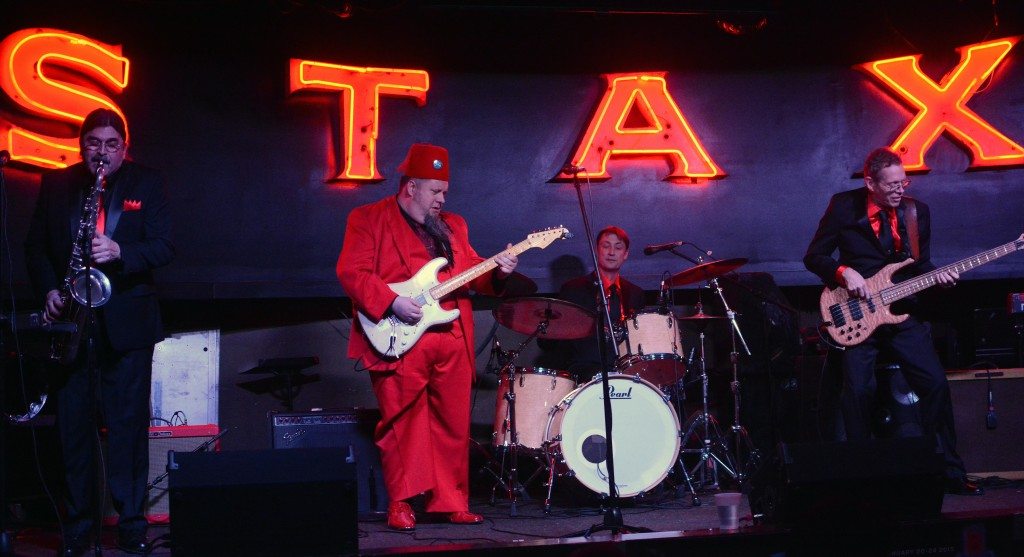
MEMPHIS – Beale Street buzzes with neon lights and beaming blues lovers every year at this time.
More than 200 bands and solo-duo performers are here to compete this week in the Blues Foundation’s International Blues Challenge. The finals are held Saturday at the top of the hill in the magnificent Orpheum Theatre. Finalists get exposure from agents and record label executives.
Tim Williams, who won the solo-duo competition in 2014, is back trying to become the first two-time winner.
“Anytime I can come here on Beale Street I am a happy guy,” Williams said, before ducking into Wet Willie’s. “Everybody in the business is here. If you come here with a business mind-set, not for the beer, barbecue and women — not that there’s anything wrong with that — there is great opportunity.”
When Williams played the opening set of the first round Wednesday in the Pig on Beale, it was easy to see how he won it all a year ago. His high voice is beautiful and acoustic slide guitar work is flawless. He is famous for performing with Robert Lockwood Jr.
“He liked me because I never asked him about playing with Robert Johnson,” Williams said. “I asked him about working at Chess as a sideman. To me, he changed the face of the blues. He played bass with his thumb while he played F sharp chords that had more to do with bebop and mainstream jazz. I think he did it because he could, and just to see if you were watching.”
Williams was followed by Boston Blues Society’s representative, Erik “Fingers” Ray, who before going onstage lamented he had to go up against Williams in 2014 as well. But “Fingers” also has a spectacular set, and he even improvised a blues shout when his amp distorted between songs.
I congratulated “Fingers” a couple hours later when I saw him at Alfred’s, and mentioned Williams played great, too.
“We did, but then the next three guys were better than both of us,” he laughed. “It’s a tough room.”
Each competitor won a competition from their local blues society to qualify for the IBC. Dave Manning and Jack Rudesill won in their third try with the Reno Blues Society. I’ve never seen Manning so animated as he was during the duo’s set in Silk O’Sullivan’s. Manning has a subtle sense of humor offered with a dry delivery, but he had to go fast this time. The bands only get a 20 minute set to impress the judges.
Manning and Rudesill were fantastic and the crowd loved them. However, the sound on Manning’s microphone muffled his vocals, and that might be all it takes to not advance to the semifinals.
There are four entrants from the Phillipines, including Joric Maglanque, whose stage name is “Delta Slim.”
“It’s a dream come true,” he told me. “It’s history right here. In the Philippines, there is a very passionate blues community but it is a very small community. This is the world stage for the blues. It’s like being in the Olympics.”
A member of the Topeka, Kansas, Blues Society, Katie Willison, is here for the seventh time. She’s supporting the band BlueCat and the solo artist Patrick Nichols.
“We are all here for the love of music,” she said. “After a while it becomes of a reunion than a challenge.”
It’s the 31st IBC, which is designed to continue the popularity of the nation’s earliest form of music.
“It (the IBC) is important because it shows there is a future in the genre,” said Richard L’Hommedieu, who manages JP Blues, the band representative from Atlanta.
While JP plays guitar in a traditional blues trio with a drummer and bass player, his music is hard rocking and explorative. JP Blues’ set in Jerry Lee Lewis’ Club, which has “Killer’s” Caddy parked out front, was explosive and unlike any of the 16 acts I caught on the first night.
His manager took exception to the notion that the band might not be considered blues-based enough to win the competition.
“Did they say Muddy Waters or Elmore James was not blues-based when they came out with their new sounds?” L’Hommedieu asked, rhetorically. “We need more independent artists to try to take the genre to a new place and make it relevant to their market. The British did more harm than good to the genre. They said, ‘It stops right here.’ What we need is to rebrand and have new music relevant to them. That’s why I call it indie blues. Every artist today, if you follow their influences, the trail ends on the same porch in Mississippi. All popular music is blues based.”
This is my second time to the IBC, and the first two days are the most fun because everyone is optimistic and happy. But every competitor has aspirations of winning, and all but two will lose. The mood changes on Friday and Saturday.
I took in at least 16 of the performances on the first night. Some were obviously better than others, but each was fun. My picks from the tiny sliver I heard? Solo/Duo: Libby Rae Watson. Bands: a tie between Sister Lucille and C.D. Woodbury.
OK, time to set away from the computer. It’s starting to get dark and I can see Beale from my hotel window.

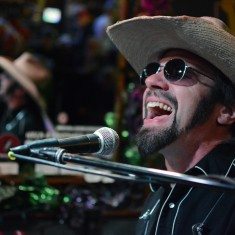
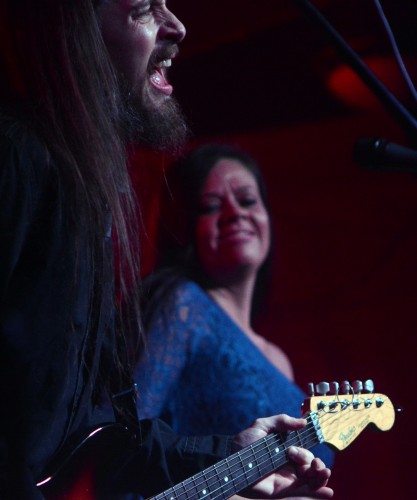
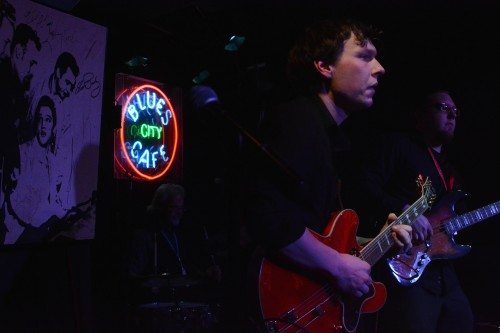
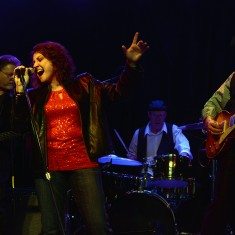
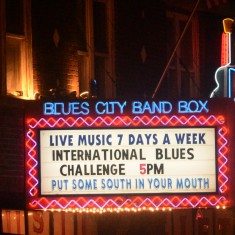

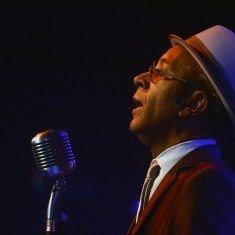
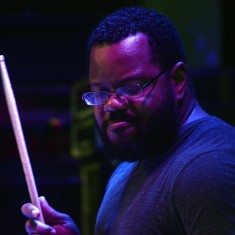
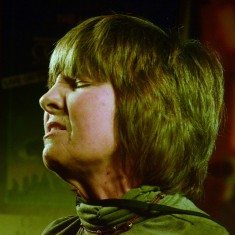
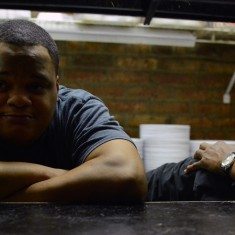

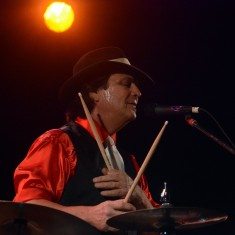
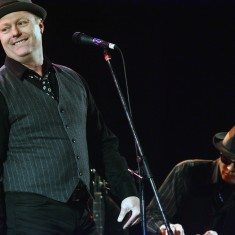
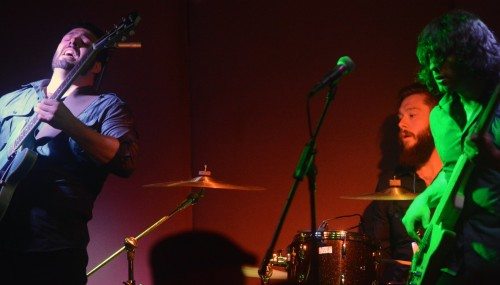
One Response
Hello Tim,
I just got back from the 34th IBC in 2018 (I haven’t been back as a competitor since the 2015 appearance in this article, because the competitors in my region are also “that tough” and I’ve re-grouped and am now appearing with a trio during that time.) And while I’ve referred a ton of folks to that awesome picture at the top, and delighted that BealeSt.org uses it for the header of their IBC promotion webpage… I confess I’ve not previously read down to the last paragraph of this article. I’m beyond delighted that we stood out among that crowd and that you enjoyed our act.
Of those two performance years, I’ve gone on to the semis twice, only to face down the eventual winner. This year, more industry folks noticed, so even though I haven’t made the stage at the Orpheum, things are looking up for “our business” of getting to work and entertain fans. Three years later, we tried to break on Beale again. We’ll see how that went as we reach out to the contacts that we made. It’s delayed but thanks for the kind words on top of that snazzy pic of the old band at Albert’s